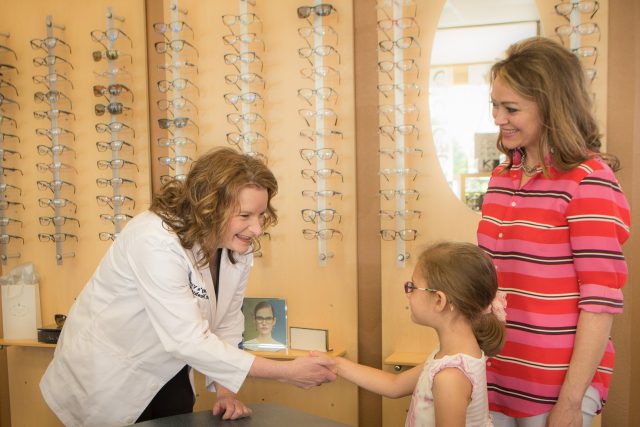

Vision problems in children often go unnoticed, even by their own parents. Because eye issues are subtle and children typically cannot articulate what is wrong, they may struggle for years before being diagnosed. Vision problems are also frequently misdiagnosed as a learning disorder because they result in many of the same symptoms.
As a parent, make sure your child is examined by an eye doctor annually and watched closely for signs of eye problems. Vision disorders have a greater chance of being corrected when detected early.

If your child has one or more of the above symptoms, the first step is to schedule a routine eye exam with an optometrist to rule out astigmatism, nearsightedness, and farsightedness. Prescription lenses can often correct these types of vision problems. But just because a child is seeing with 20/20 acuity, does not mean they do not have vision problems. They could have a non-refractive vision problem that cannot be diagnosed during a routine eye exam or corrected by glasses or contact lenses. These are the types of vision disorders that vision therapy helps.
A comprehensive eye exam with an optometrist or vision therapist is necessary to diagnose non-refractive vision problems. The optometrist gives additional tests of eye teaming, depth perception, focusing, eye movements, and visual-motor skills.
If you suspect your child has any sort of eye problems, call Tyler Vision Therapy to schedule a comprehensive eye exam with Dr. Neshia Rudd. As an optometrist and vision therapist, Dr. Rudd is trained to treat more eye problems than a typical optometrist.